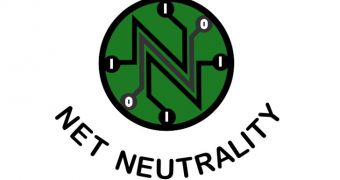Money talks, and that's also true for the FCC. If you were wondering why net neutrality was dying and why, despite all the opposition from citizens, companies and the media, the FCC was going through with its plans to allow Internet providers to create fast lanes, then you should know exactly who’s lobbying against net neutrality.
According to the Daily Dot, starting with 2005, when “net neutrality” was first mentioned in lobbying disclosure reports, Verizon, AT&T, Comcast and their allies have done nothing else than lobby against the interests of their customers, choosing to put their own pockets first.
AOL, Level 3 Communications, Google, Microsoft and others have fought for the other side, urging the FCC to instate net neutrality rules that would make it illegal for Internet providers to discriminate or charge differentially by user, content, site, platform or app. Basically, net neutrality means that every online service should get the same treatment and quality speed and customers can’t be stopped from watching whatever content they desire.
In the top 20 lobbying organizations that mentioned net neutrality or network neutrality between 2005 and 2013, you can find an even split between those seeking to help users and those trying to help themselves.
While this may all sound great, the intensity of their lobbying efforts differs greatly. While the ten most active pro net neutrality entities filed a total of 176 lobbying reports on this matter, the others filed 472. In fact, the top 5 lobbying efforts in regard to net neutrality are all against the notion – Verizon Communications, AT&T Inc., Comcast Corp, National Cable and Telecommunication Association, and the National Music Publisher Association.
Not only is the anti-net neutrality group a lot more active, but it also invests a lot more money. These groups have consistently outspent the principle’s supporters by a margin of more than 5 to 1. The defenders of net neutrality have started spending more than $25 million (€18.2 million) in the past few years, while the telcos have been doing this for a long time, spending north of $75 million (€54.7 million) for each of the past five years.
As a reminder, the FCC has been proposed a new set of net neutrality rules that allow companies to create an Internet fast lane for which content providers have to pay. Netflix has recently signed a similar deal with Comcast and Verizon after performance dropped on these networks.

 14 DAY TRIAL //
14 DAY TRIAL //